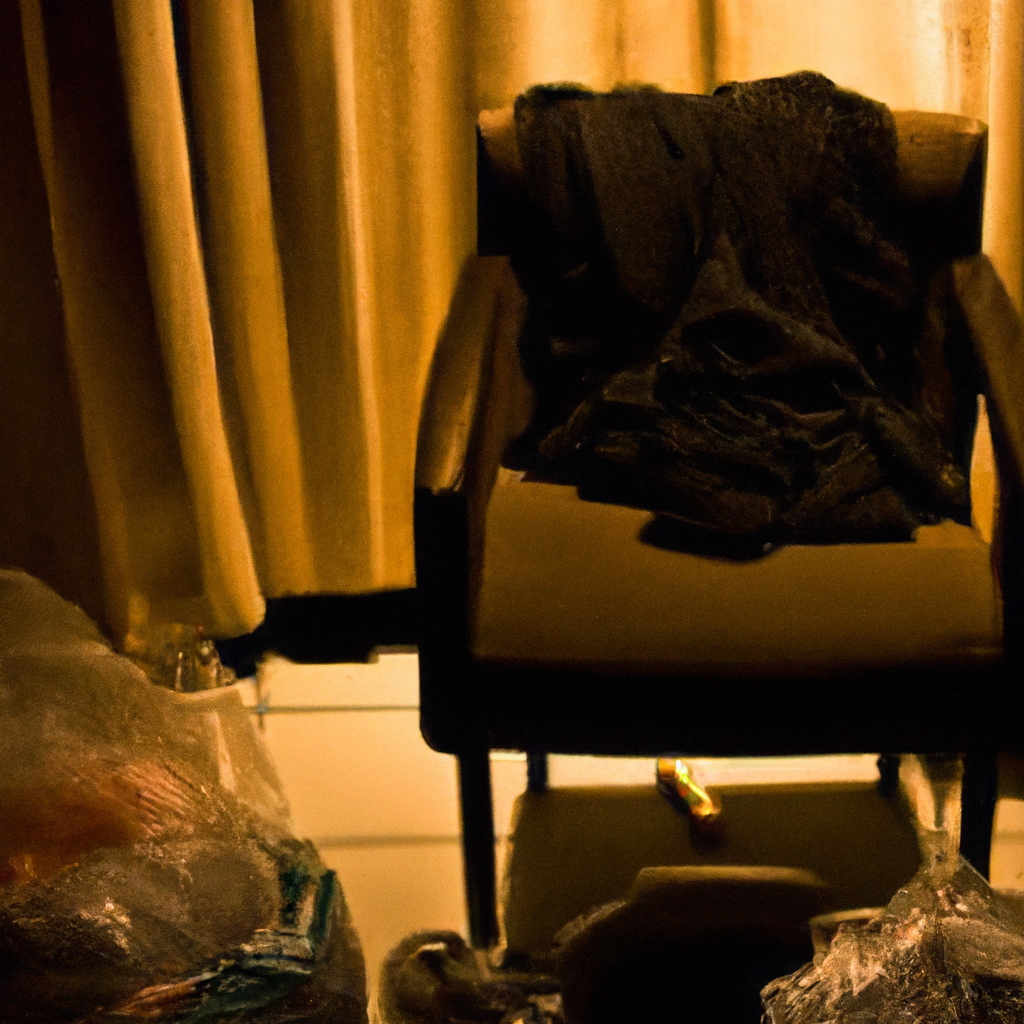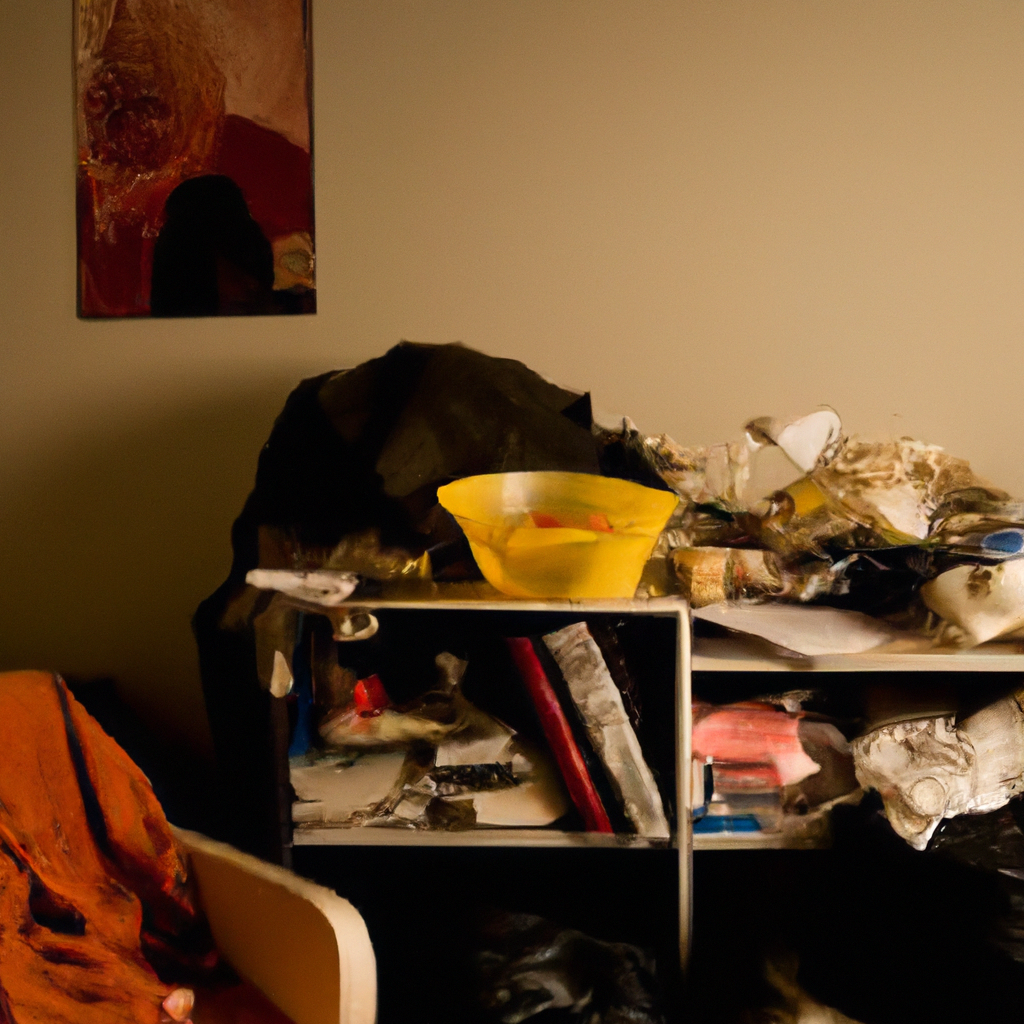
Using clutter or material possessions as a distraction from loneliness or other negative emotions is like trying to turn off the lights to avoid a pest infestation problem. It may seem like a temporary solution, but the underlying issue remains. Just like pests continue to flourish in the dark, our feelings of loneliness, depression, and anxiety grow when we use material goods to mask them. Ignoring these emotions doesn’t make them disappear; instead, they become more prominent and eventually take over our lives in an overwhelming and unavoidable way.
So, what are the feelings you are covering up with possessions? It’s important to recognize that material goods can never truly replace human connection and fulfillment. Instead of relying on possessions as a distraction, it’s crucial to address the root causes of loneliness and find healthier ways to cope, such as building meaningful relationships, engaging in self-care, and seeking support when needed.
Table of Contents
Introduction
Feeling lonely is a universal experience that can be incredibly challenging to confront. It often brings about a range of emotions, including sadness, emptiness, and a sense of disconnection from others. One way that individuals attempt to alleviate these feelings is by using material possessions as a distraction. Whether it’s accumulating clutter or engaging in excessive shopping, possessions are frequently employed as a means of avoiding loneliness. However, this temporary relief can have serious implications for one’s mental health and overall well-being. In order to truly address and overcome loneliness, it is essential to understand the link between possessions and loneliness, the negative impact on mental health, the role of materialism, and the alternatives to material possessions.
Definition of loneliness
Loneliness is often misunderstood, as it is not the same as solitude. Solitude refers to the state of being alone, which can be a choice and even therapeutic at times. On the other hand, loneliness is characterized by a deep sense of social isolation and the absence of meaningful connections with others. Chronic loneliness, in particular, can have severe repercussions on one’s mental and physical health. Research has shown that individuals who experience chronic loneliness have an increased risk of developing depression, anxiety, and other mental health disorders. Sadly, loneliness has become increasingly prevalent in today’s society, with numerous factors contributing to its rise.

This image is property of i.ytimg.com.
The Link Between Possessions and Loneliness
Possessions can serve as a temporary solution to loneliness, providing a fleeting sense of comfort and distraction. By accumulating material goods, individuals may believe they are filling a void within themselves. They may find solace in surrounding themselves with possessions, as it creates the illusion of companionship and completeness. However, this link between possessions and loneliness is inherently flawed, as material goods cannot substitute for genuine human connection. Over time, using possessions as a distraction can exacerbate feelings of emptiness, as the initial relief fades away, leaving individuals with an even greater sense of loneliness.
Negative Impact on Mental Health
Relying on possessions as a means of distraction can have severe consequences for mental health. The temporary fulfillment that material goods provide often masks underlying emotional issues, preventing individuals from truly addressing their feelings of loneliness and discontent. This illusion of fulfillment can lead to a cycle of constant acquisition, as individuals believe that acquiring more possessions will lead to lasting happiness. Unfortunately, this mindset only perpetuates materialistic values, placing emphasis on external validation through material goods rather than on building genuine human connections. As a result, the risk of developing depression, anxiety, and other mental health disorders increases significantly.

The Role of Materialism
Materialism, defined as the excessive focus on material possessions and wealth, plays a significant role in the link between possessions and loneliness. In a consumer culture that constantly bombards individuals with messages of what they should own and aspire to, it is easy to fall into the trap of using possessions as a means of validation and companionship. The pressure to conform to societal expectations and find happiness in material goods can further isolate individuals, as they may feel disconnected from their authentic selves and lose sight of their true values and desires. Advertising also plays a pivotal role in promoting materialistic tendencies, perpetuating the idea that possessions are the key to happiness and fulfillment.
Types of Possessions Used as Distractions
There are various ways in which individuals use possessions as distractions from loneliness. Excessive shopping and hoarding are common behaviors, often driven by the belief that acquiring more possessions will bring about a sense of fulfillment and happiness. Some individuals turn to collecting items, as the act of accumulating and organizing becomes a substitute for real human connection. Additionally, there is a constant need for upgrades and new purchases, as individuals seek novelty and excitement to momentarily escape feelings of loneliness.

Shopping as a Coping Mechanism
Shopping is frequently used as a coping mechanism to temporarily alleviate feelings of loneliness. Emotional shopping, or retail therapy, offers a brief respite from negative emotions, triggering the release of dopamine in the brain. This biochemical response creates a sense of pleasure and satisfaction, similar to the feeling of being rewarded. However, this relief is short-lived and often accompanied by a sense of guilt and regret once the initial excitement wears off. For some individuals, this behavior may escalate into compulsive buying disorder, a serious mental health condition characterized by an uncontrollable urge to shop and a cycle of emotional highs and lows.
The Illusion of Connection
Despite surrounding themselves with possessions, individuals using material goods as distractions from loneliness often find themselves trapped in a cycle of superficial relationships. The validation-seeking behavior common in today’s society, fueled by social media, further perpetuates this illusion of connection. People may rely on likes, comments, and virtual interactions as a substitute for genuine human connection, resulting in increased feelings of isolation. Paradoxically, even with an abundance of possessions and online connections, individuals using possessions as distractions may feel more distant and disconnected from others than ever before.
The Importance of Social Relationships
While possessions may offer temporary relief, it is essential to recognize that genuine human connections are the key to combating loneliness in a meaningful and sustainable way. Building and nurturing authentic relationships requires time, effort, and vulnerability. Meaningful connections provide emotional support, companionship, and a sense of belonging that possessions simply cannot replicate. Engaging in activities that foster genuine connections, such as joining community groups, cultivating friendships, and seeking professional help when needed, is crucial for addressing and overcoming loneliness.
Alternatives to Material Possessions
Rather than relying on material possessions as distractions from loneliness, there are healthier alternatives individuals can explore. Engaging in activities that promote self-reflection, self-care, and personal growth can provide a sense of purpose and fulfillment. Developing hobbies, practicing mindfulness and meditation, volunteering, and engaging in physical exercise are examples of activities that can enhance well-being and create opportunities for genuine connections with others. Additionally, seeking therapy or support groups can provide a safe space to explore and address underlying feelings of loneliness and develop healthier coping mechanisms.
Conclusion
Using possessions as distractions from loneliness may provide temporary relief, but it ultimately deepens the sense of emptiness and disconnection. The negative impact on mental health, perpetuation of materialistic values, and illusion of connection that material possessions create all contribute to the cycle of loneliness. To truly address and overcome loneliness, it is crucial to recognize the importance of genuine human connections and seek healthier coping mechanisms that promote self-reflection, personal growth, and authentic relationships. By embracing alternatives to material possessions, individuals can embark on a journey of self-discovery and establish meaningful connections that bring fulfillment and lasting happiness.

